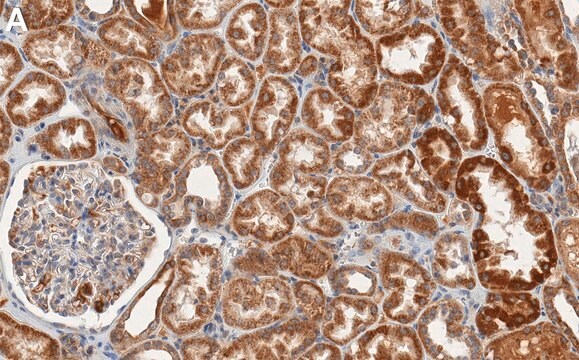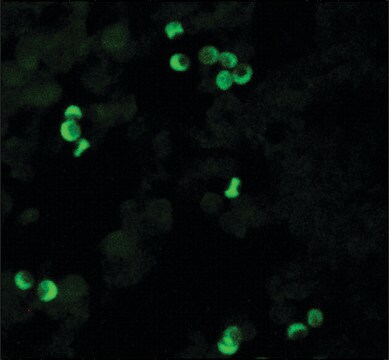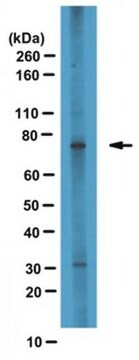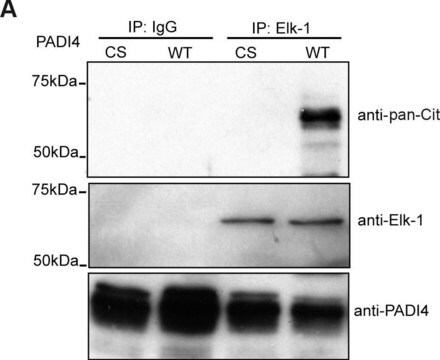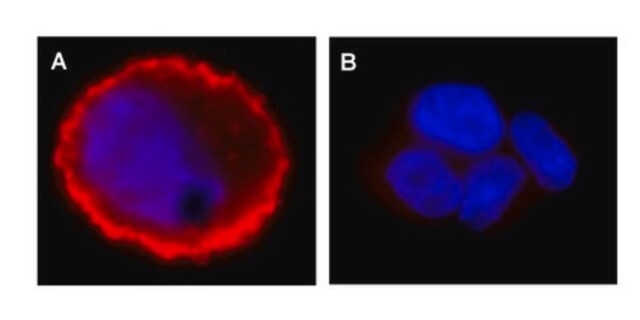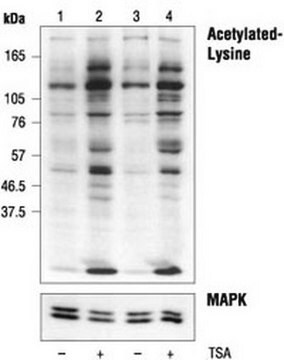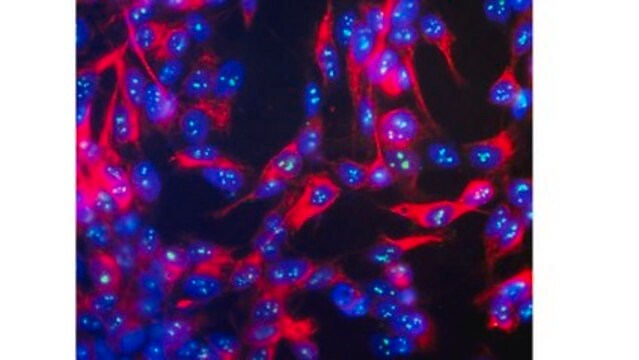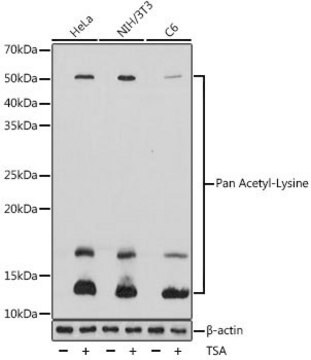ABN1477
Anti-nSR100 (SRRM4)
from rabbit
Sinónimos:
Serine/arginine repetitive matrix protein 4, Medulloblastoma antigen MU-MB-2.76, Neural-specific serine/arginine repetitive splicing factor of 100 kDa, Neural-specific SR-related protein of 100 kDa, nSR100
About This Item
Productos recomendados
biological source
rabbit
Quality Level
antibody form
purified antibody
antibody product type
primary antibodies
clone
polyclonal
species reactivity
mouse, human
packaging
antibody small pack of 25 μg
technique(s)
immunohistochemistry: suitable (paraffin)
western blot: suitable
NCBI accession no.
UniProt accession no.
shipped in
ambient
target post-translational modification
unmodified
Gene Information
human ... SRRM4(84530)
Categorías relacionadas
General description
Specificity
Immunogen
Application
Quality
Western Blotting Analysis: 0.5 µg/mL of this antibody detected nSR100 (SRRM4) in 10 µg of human cerebellum tissue lysate.
Target description
Physical form
Other Notes
¿No encuentra el producto adecuado?
Pruebe nuestro Herramienta de selección de productos.
Certificados de análisis (COA)
Busque Certificados de análisis (COA) introduciendo el número de lote del producto. Los números de lote se encuentran en la etiqueta del producto después de las palabras «Lot» o «Batch»
¿Ya tiene este producto?
Encuentre la documentación para los productos que ha comprado recientemente en la Biblioteca de documentos.
Nuestro equipo de científicos tiene experiencia en todas las áreas de investigación: Ciencias de la vida, Ciencia de los materiales, Síntesis química, Cromatografía, Analítica y muchas otras.
Póngase en contacto con el Servicio técnico